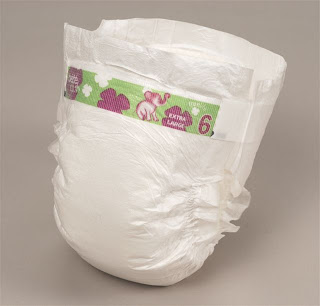

| Visitors Now: | |
| Total Visits: | |
| Total Stories: |

| Story Views | |
| Now: | |
| Last Hour: | |
| Last 24 Hours: | |
| Total: | |
Two nations divided
By Brian Clegg
 |
| This is NOT a napkin |
As an Englishman* who quite often writes for an American publisher I am all too aware of the way we are indeed two nations divided by a common language. To be fair, modern media has weakened this significantly. We all know over here what an American means when she refer to an elevator, and even cope with the confusion over purses, vests, suspenders and pants. Similarly, I gather from articles in the US press, that some quaint English English terms like loo and saying ‘cheers’ for goodbye have become more familiar that side of the Atlantic. Even so, I do occasionally make a slip.
A while ago, for example, I was referring to the peculiarity of action at a distance. The idea that you can make something happen remotely without anything passing from A to B is a difficulty that underlies some of the confusion caused by quantum theory, and was why Newton got so much stick for his work on gravitation. I said that we expect something to travel from A to B to make something happen. For instance, in a coconut shy, we expect to have to throw a ball at the coconut, rather than just look at it and make it fall off its stand. ‘A coconut WHAT???’ said my US editor. In the book it ended up as having to throw a stone to knock a can (not a tin, of course) off a wall.
Even those who are experts can get caught out with subtle differences of meaning. I remember being most amused a number of years ago by a book by an American expert on international business. The topic of the book was not making errors by using words and methods that weren’t appropriate in a foreign country. He gave the example of an American opening a restaurant chain in England. ‘You must make sure,’ he said, ‘that you call the napkins “serviettes”. In England, a napkin is the word for a diaper.’
UK readers will get why this is so wrong. For US readers, we actually call a diaper a ‘nappy’ over here. Although that word is derived from napkin we would never call a diaper a ‘napkin’. In fact in UK English, napkin is the more proper word for a napkin (well, duh) – ‘serviette’ (the French word) is considered rather common, a bit like saying ‘john’ or ‘can’ rather than ‘bathroom’.
*I don’t know why, but I get a buzz from referring to myself as ‘an Englishman.’ Perhaps it’s something to do with Sting’s song, An Englishman in New York.
Now Appearing is the blog of science writer Brian Clegg (www.brianclegg.net), author of Inflight Science, Before the Big Bang and The God Effect.
2013-01-21 02:48:21
Source: http://brianclegg.blogspot.com/2013/01/two-nations-divided.html
Source:


